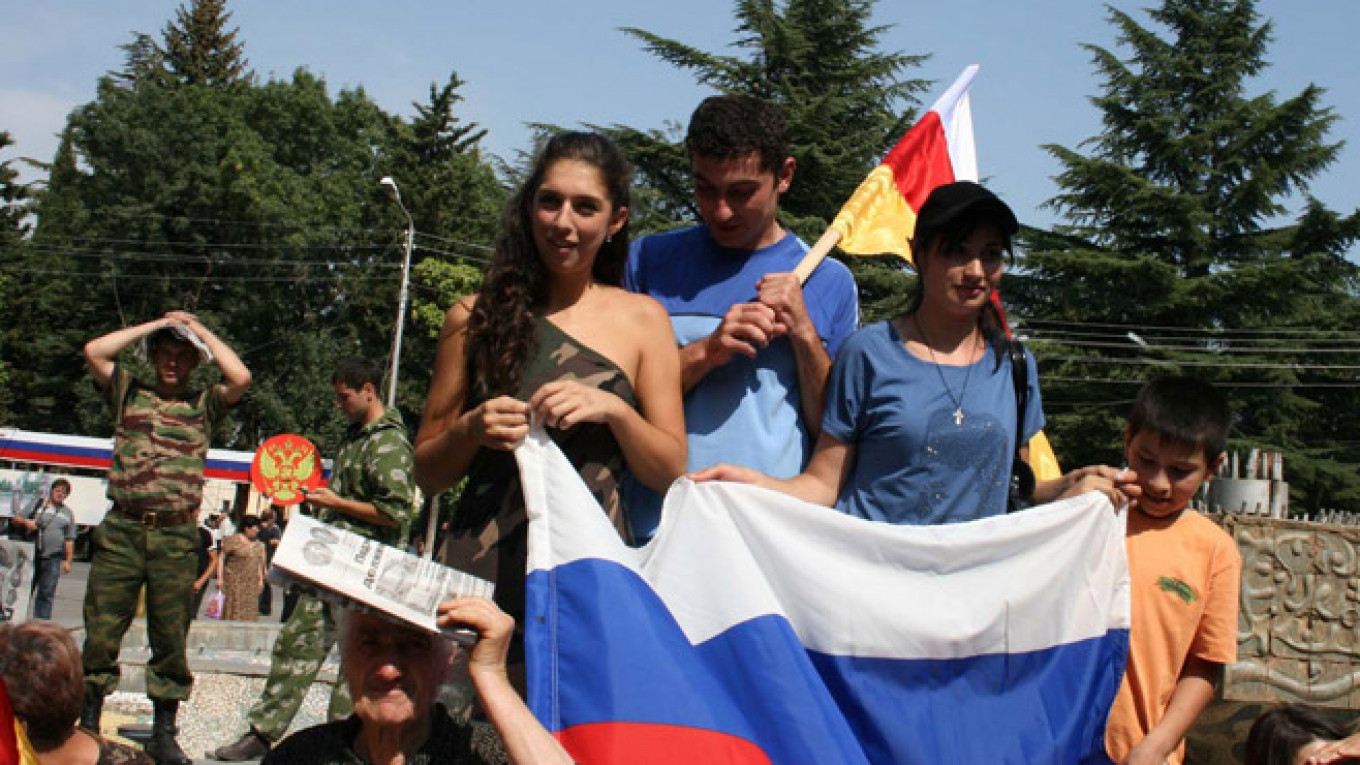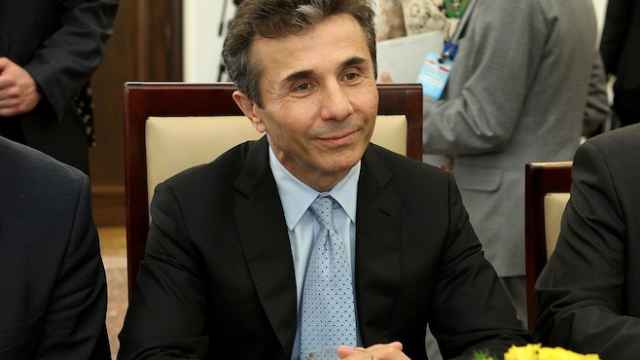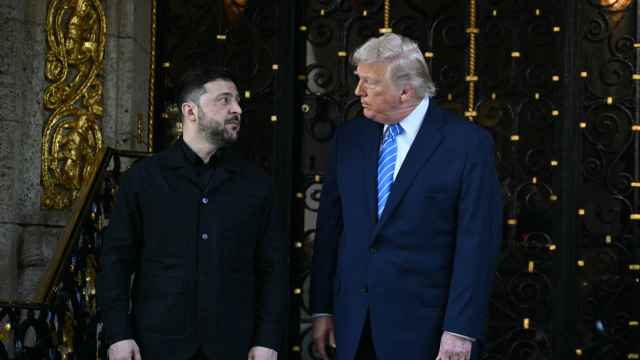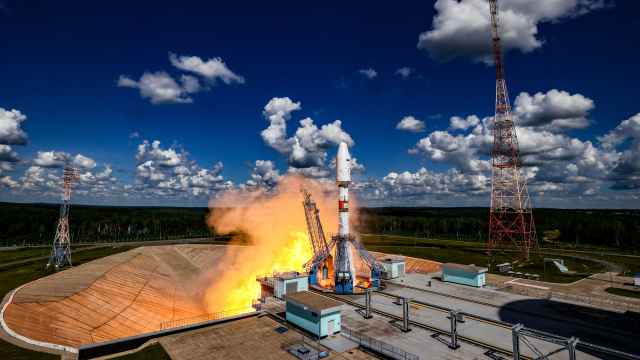Originally published by EurasiaNet.org.
Just as the European Parliament on Dec. 18 approved an association agreement with Georgia, the Georgian-claimed, breakaway region of South Ossetia unveiled a rival association deal with Russia.
Keeping up with the regional fad of being annexed by Russia, the separatist territory issued terms of reference for how it would like to be absorbed.
The draft document offers to surrender to Russia such attributes of de-facto statehood as the army, police and courts. Not to mention, the "protection and patrolling of national borders."
Customs checkpoints (not generally accepted for South Ossetia internationally) would be eliminated between the region and the Russian Federation and any restrictions on citizens moving across the de-facto border would be abolished, the draft continues.
In other words, no need to send little green men. There is a catch, though — South Ossetia, an impoverished region of some 50,000 residents, wants Russia to pretty much sustain it financially.
The region, which was recognized by Moscow in 2008 as an independent country, purportedly sees this takeover as a way of reuniting with its Ossetian kin in neighboring North Ossetia, part of the Russian Federation.
The notion has been around for awhile, but the annexation of Crimea and proclamations of independence by Russian-backed separatists in Donetsk and Luhansk in Ukraine, breathed new life into South Ossetia's plans.
Moscow already has signed a similar, though less all-embracing, agreement with Abkhazia, the other region that maintains de-facto independence from Georgia.
These documents commit to paper much of what already is in effect, but, strategy-wise, take matters a step further. They also dilute Russian claims of backing these regions' struggle for independence out of pure altruism.
Ordinarily, such a document, seen as a counterweight to Georgia's EU deal, would send off alarm bells in Tbilisi. But Georgian politicians had other things on their minds.
With one European parliamentarian dropping hints about prospective membership, they were busy applauding the European Parliament's confirmation of Georgia's association agreement.
As is their wont on such occasions, they spent much of the time before the vote wrangling over who would represent Georgia in the European Parliament on the big day and how.
Georgian President Giorgi Margvelashvili attended the voting and so did ex-President Mikheil Saakashvili, much to the chagrin of his foe, Prime Minister Irakli Garibashvili.
Saakashvili later claimed on Dec. 18 that the Georgian government had revoked his presidential passport, Interpressnews reported. The government has not yet issued an official response.
A Message from The Moscow Times:
Dear readers,
We are facing unprecedented challenges. Russia's Prosecutor General's Office has designated The Moscow Times as an "undesirable" organization, criminalizing our work and putting our staff at risk of prosecution. This follows our earlier unjust labeling as a "foreign agent."
These actions are direct attempts to silence independent journalism in Russia. The authorities claim our work "discredits the decisions of the Russian leadership." We see things differently: we strive to provide accurate, unbiased reporting on Russia.
We, the journalists of The Moscow Times, refuse to be silenced. But to continue our work, we need your help.
Your support, no matter how small, makes a world of difference. If you can, please support us monthly starting from just $2. It's quick to set up, and every contribution makes a significant impact.
By supporting The Moscow Times, you're defending open, independent journalism in the face of repression. Thank you for standing with us.
Remind me later.






